Short on space but still dreaming of fresh fruit? These 8 compact fruit trees are perfect for patios, balconies, or tight backyard corners, and they don’t skimp on harvests either!
Dwarf fruit trees are a smart choice for gardeners who want maximum flavor with minimal fuss. Their smaller size makes pruning, watering, and harvesting easier, while still producing full-sized fruits.
Many thrive in pots, so even if you live in an apartment, you can still enjoy a sweet reward. These trees don’t just offer juicy fruit, they’re also beautiful additions to your garden with lovely blossoms and lush foliage.
Whether you’re a beginner or a seasoned grower, these small but mighty trees bring flavor and charm to any outdoor space. Let’s take a look at your new fruity favorites!
#1 Washington Navel Orange
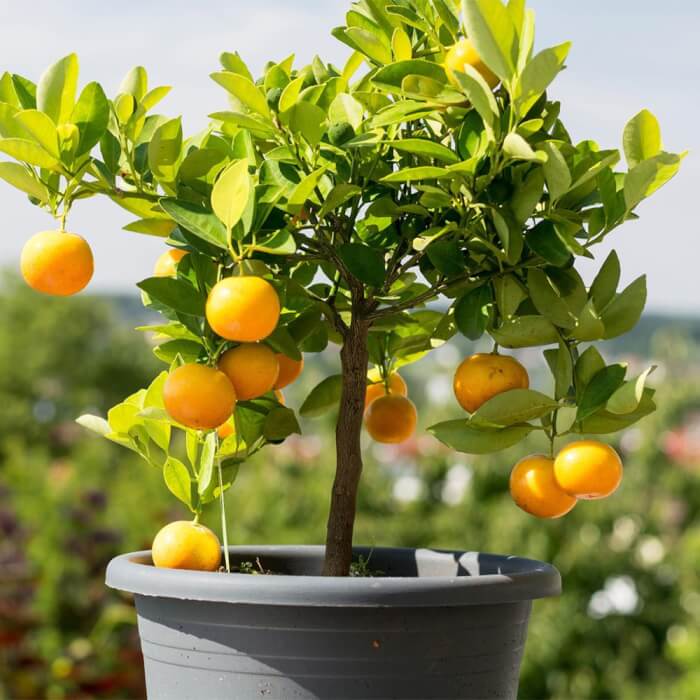 Source: Poppysgc
Source: Poppysgc
This classic orange variety is famous for its seedless, easy-to-peel fruit with bold, juicy flavor. The tree thrives in warm, sunny spots and can be grown in containers with good drainage.
Keep it near a sunny window or out on the patio if you live in a mild climate.
Water consistently, especially during fruit development, and bring it indoors during cold snaps. With proper care, you’ll enjoy citrusy goodness straight from the tree!
#2 Santa Rosa Plum
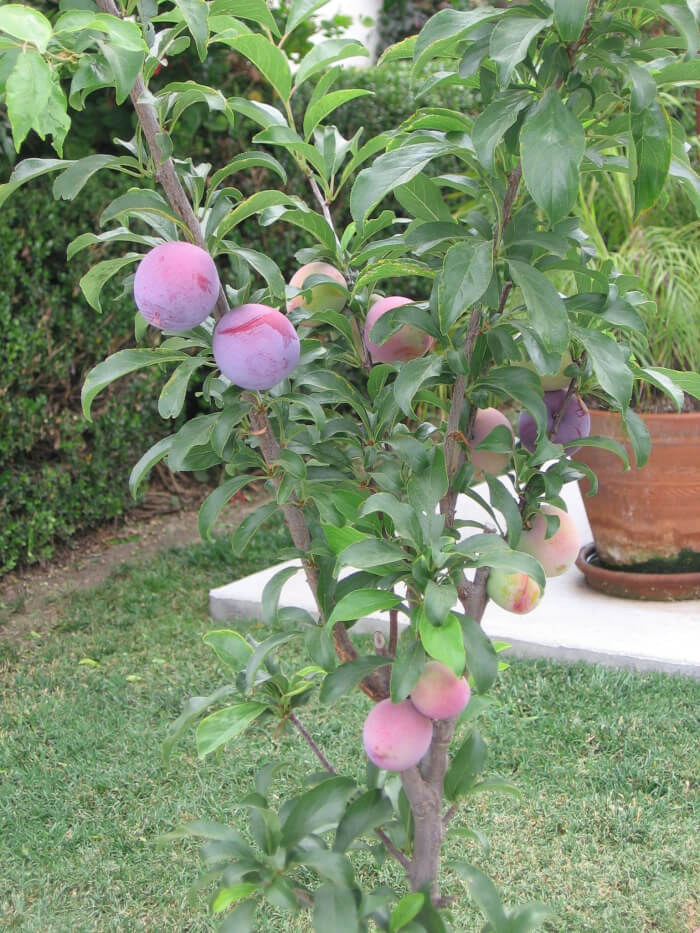 Source: Pinterest
Source: Pinterest
Bursting with sweet, tangy flavor, this Japanese plum produces large red-purple fruits in mid to late summer. It’s self-pollinating, though fruiting improves with a pollinator partner nearby.
Ideal for USDA zones 5 to 9, it can grow 10–12 feet tall but is easily kept smaller with pruning. Plant it in a sunny spot with good air circulation. Prune in late winter to shape and boost fruit production.
#3 Celeste Fig
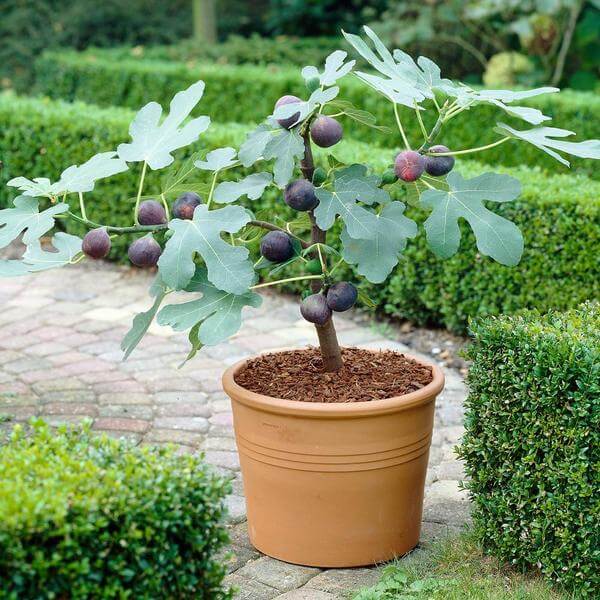 Source: Brighterblooms
Source: Brighterblooms
This heat-loving fig produces small-to-medium bronze-purple fruits with a honey-sweet flavor. It’s one of the most cold-hardy varieties, best for zones 8 to 10, and does beautifully in large pots.
Place it where it gets at least 6 hours of sunlight daily. Water deeply but infrequently, letting soil dry slightly between waterings. The fruit melts in your mouth and arrives earlier than many other figs.
#4 Elberta Peach
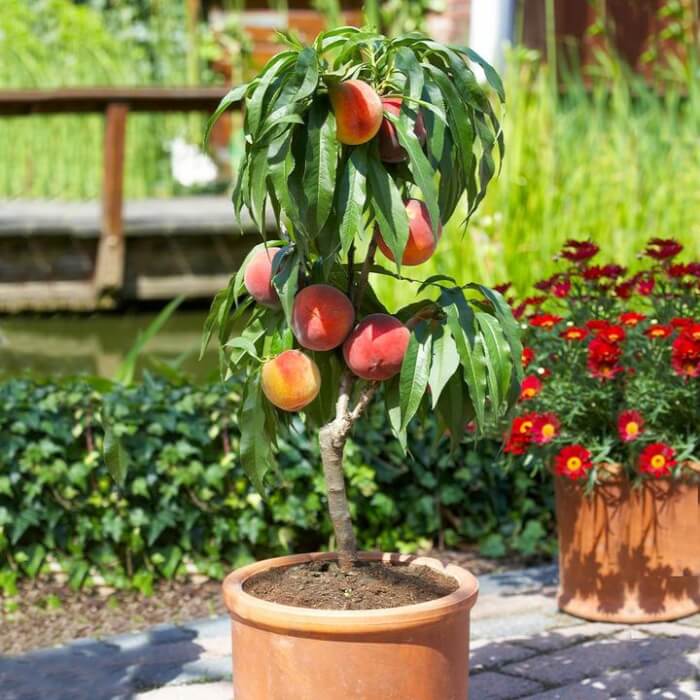 Source: Brighterblooms
Source: Brighterblooms
This is one of the juiciest and most flavorful peaches you can grow at home. Its fuzzy golden fruits ripen in mid-to-late summer and are great for eating fresh or baking into pies.
Hardy in zones 5 to 9, Elberta peaches do best with full sun and well-draining soil.
Annual pruning keeps the tree compact and encourages better airflow. Watch for peach leaf curl in spring and treat early if needed.
#5 Black Mulberry
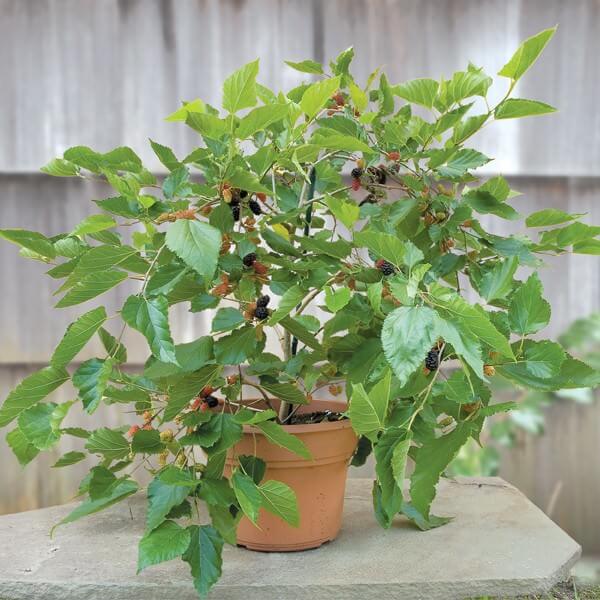 Source: Balconygardenweb
Source: Balconygardenweb
Known for its rich, wine-colored fruit, Black Mulberry trees are slow growers that can stay compact with pruning. Even at just 2 to 10 feet tall, they yield impressive crops in zones 5 to 9.
Mulberries love full sun and deep watering during dry periods. Harvest when berries are deep purple and slightly soft. Use a tarp beneath the tree for easy collection; those juicy berries can stain!
#6 Ice Cream Mango
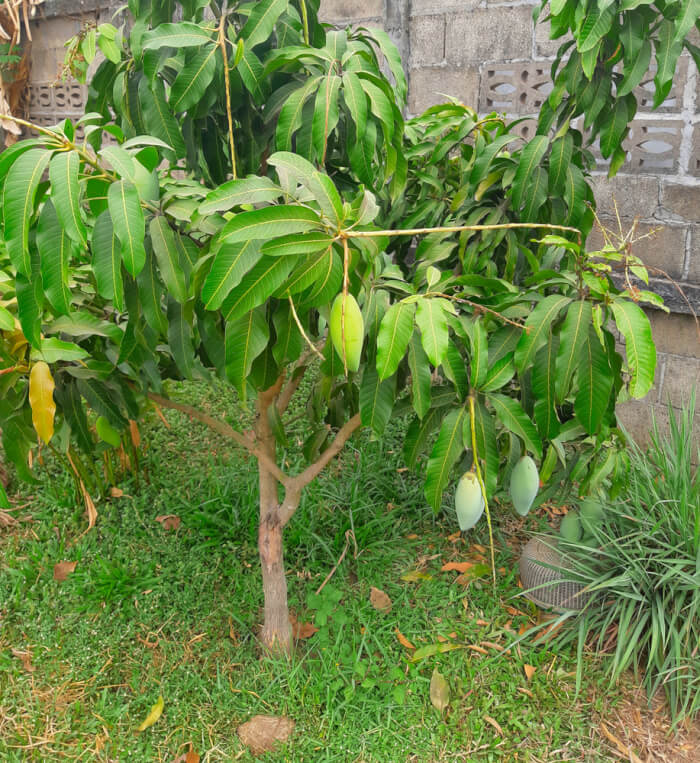 Source: Ruralsprout
Source: Ruralsprout
If you’ve never tried this creamy, fiberless mango, you’re in for a treat. It’s one of the best mangoes for containers, staying compact at around 6 to 8 feet. Perfect for zones 9 to 11, but container growers can overwinter it indoors in colder climates.
Place it in the sunniest spot possible and protect it from cold winds. Feed with a tropical fruit fertilizer monthly during the growing season for the best results.
#7 Red Delicious Apple
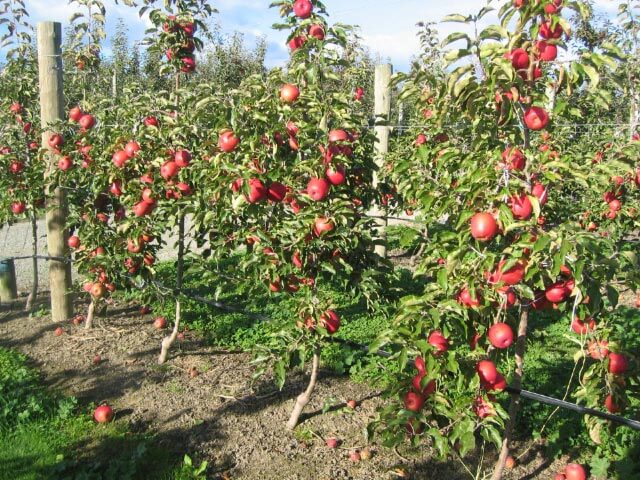 Source: Waimeanurseries
Source: Waimeanurseries
This classic apple tree offers crisp, sweet apples with glossy red skin. Dwarf versions reach around 8 to 10 feet tall and flourish in zones 5 to 8. In spring, its pinkish-white blossoms are a showstopper!
Plant in a sunny location and mulch well to retain moisture. Thin the fruit when small for better size and quality at harvest.
#8 Black Tartarian Cherry
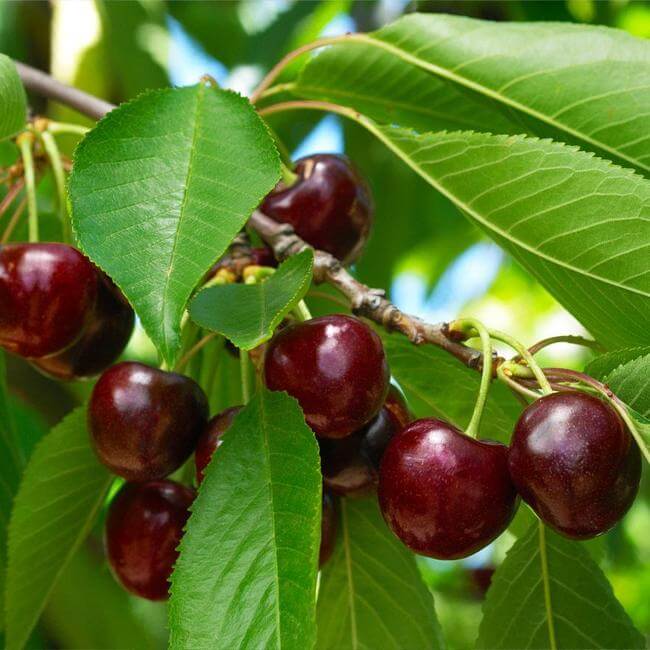 Source: Fast-growing-trees
Source: Fast-growing-trees
With heart-shaped purplish-black fruit and fragrant white blossoms, this cherry is both tasty and ornamental. Best in zones 5 to 8, it produces mid-summer clusters that birds love, so be ready to share or net the tree!
Choose a well-drained, sunny location and prune to maintain airflow. A second cherry tree nearby can improve pollination and fruit set.
